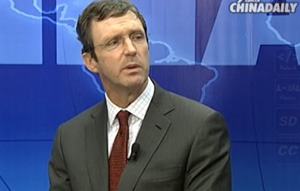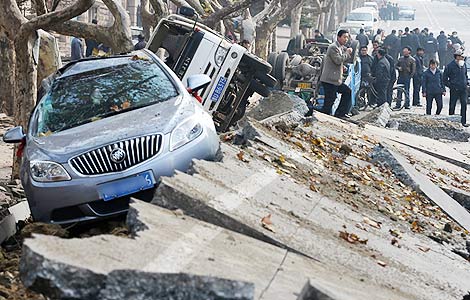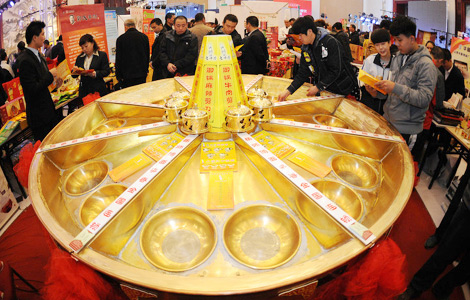Feel-good stories ask questions of us all
Updated: 2013-11-23 07:43
By Raymond Zhou (China Daily)
|
||||||||
Two tales in two cities, one American and one Chinese, testify to the shared humanity that binds us all.
To dispel the gloom of the day, there is nothing like a heartwarming true story. Make it two stories, a perfect pair, as a matter of fact, that took place across the Pacific Ocean almost simultaneously.
On Nov 15, San Francisco turned into Gotham when 5-year-old Miles Scott, in remission from leukemia, donned the Batkid cape and went around the City by the Bay performing superhero deeds. Thousands came out to play along and cheer him on.
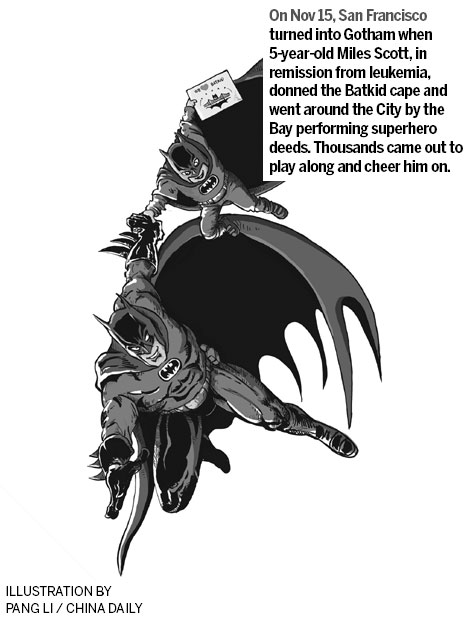
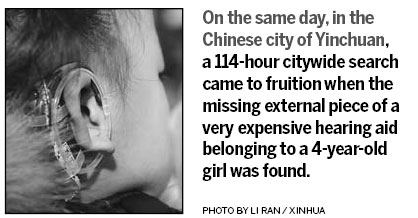
On the same day, in the Chinese city of Yinchuan, a 114-hour citywide search came to fruition when the missing external piece of a very expensive hearing aid belonging to a 4-year-old girl surnamed Song was found. The deaf girl's parents are migrant workers and failure to find the lost part would not only mean another expenditure to the tune of 280,000 yuan ($45,900) but also another operation for an implant in her skull.
Both stories brought tears to my eyes. However temporarily, they suspended the cynic in me and made me believe in humanity again.
The two stories share a lot of similarities: Both children are victims of ill health of a congenital nature, and in the Chinese girl's case the circumstances were exacerbated by her family's economic difficulties. Both incidents involved tens of thousands of ordinary people and were facilitated by the technology of social media. So, it was not just one good-hearted person reaching out to a poor kid, but two whole cities in community spirit turning out to help someone who effectively became a symbol of all those who need help.
Most remarkably of all, the two stories had the perfect balance between spontaneity and organization. Yes, the stories of the kids touched a universal chord, but there were people behind the scene who were instrumental in making them into events. In the case of the American kid, Make-A-Wish Foundation is known for arranging experiences for children with life-threatening medical conditions. And a local marketing company helped build the news into a groundswell through Twitter. To recover the hearing aid for the Chinese girl, local news organizations devoted pages to it and local government agencies blogged about it.

These organizations lent much-needed authenticity to the cases. There are thousands of "For help" notices online and in the early days of weibo, the popular micro blog service in China, celebrities would use their clout and retweet them to spread the word. But very often they did not have the time and ability to verify the claims. It takes just one scam to pour water onto the fire of public compassion.
This doesn't just happen in China. When people create an avalanche of goodwill by opening their hearts and wallets to help those less fortunate, as in the aftermath of a massive natural disaster, there are always a handful of bad apples who want to take advantage of the public mood. So, a verification mechanism is needed. News organizations or the police or NGOs like Make-A-Wish can perform this task. The more credibility it has, the less suspicion there will be from the public about its announcement.
Apart from truthfulness, timing is an important factor. Altruism is never out of time, but there is a time for specific arrangements. For example, if the San Francisco Batkid affair preceded the release of a new Batman movie, some might have interpreted it as a promotional gimmick for the movie. Likewise, if the local government in Yinchuan had been embroiled in some kind of charity scandal of late, its call for action to help the girl would have been met with mistrust or even derision.
There was a key difference between the US story and the Chinese one. For Miles Scott, the San Francisco mayor took part in the climax of the mass excitement and US President Barack Obama sent words of encouragement. For the Chinese girl, only the official platforms were used, but not officials themselves. Isn't the citywide search for the hearing aid the best illustration of the Lei Feng spirit, which the government so eagerly promotes?
My guess is, the story developed impromptu and without the vetting of certain personnel so that nobody high up was aware of its publicity potential. This is certainly positive in terms of results because the story had a naturalness to it that endeared it to a mass audience. Had it been embellished with an "official" coating, it might have sounded too pompous and exaggerated for public taste. For there have been many precedents where an uplifting true story was stripped of its authentic details and moved up into the grotesque realm of the morality tale.
Then there was the absence of official participation. Apart from the time lapse due to unpreparedness, local officials may have had misgivings that their presence would have been seen as insincere and a mere attempt to hog the credits. If so, this was the right move. Good Samaritanism should not be a government project. It should be encouraged by the government - with certain measures to protect those who perform it, which are being implemented across China right now - but ultimately it is a civic duty shared by all and performed with utmost willingness but not necessarily with fanfare.
Clearly, not every child who needs help can receive exposure of this scale. The Scott boy and the Song girl luckily stumbled into moments of generosity brought forth by many factors, some of which were beyond anyone's control. If a local newspaper printed a story of one such kid every day, people would quickly grow tired and categorically ignore these stories. But there are more than 365 such kids in one city alone. So, a one-off stunt might make us feel good, but it will not solve all the problems in such cases.
That's where philanthropy as a system should kick in. It's wonderful that we share this collective experience of doing good, which makes us feel good. But it should not just be moments of bleeding-heart explosions, but rather, long-term simmering of empathy that keeps our society warm for anybody caught in misfortune. And that includes kids who may not be so cute or whose maladies may not be dramatized in soap operas and popular novels.
A good system of philanthropy should be able to spread goodwill in a more scientific manner, counteracting the public tendency to heap attention on one high-profile target and ignore the rest. Meanwhile, people should learn that small acts of kindness may not always form a torrent, but remain trickles that seep into the daily lives and keep all of us nourished and flowering in the garden of humanity.
Finally we have to go beyond charity and examine the economic system and the healthcare industry to make sure the net does not have giant holes in it through which whole sections of society may fall. Fairness means the lucky must help the unlucky so that the bulk of society stays firm. Only when the system prevents most people, including kids with severe medical conditions, from reeling in desperation will our dramatic outpouring of compassion be a reminder of who we are and what we can be when we stand together.
Contact the writer at raymondzhou@chinadaily.com.cn.
(China Daily 11/23/2013 page11)
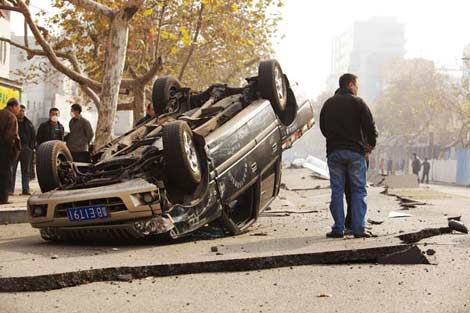
 47 die in oil pipe blast
47 die in oil pipe blast
 UN climate talks reach deal
UN climate talks reach deal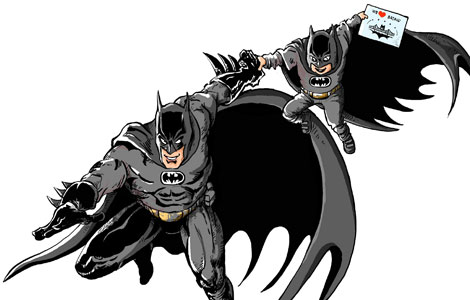
 Feel-good stories ask questions of us all
Feel-good stories ask questions of us all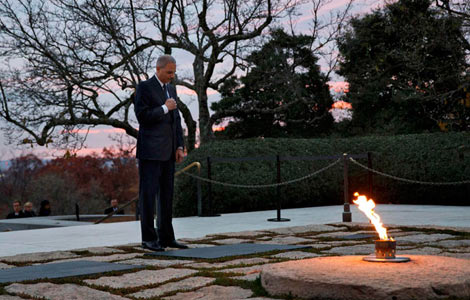
 US marks the 50th anniversary of JFK's assassination
US marks the 50th anniversary of JFK's assassination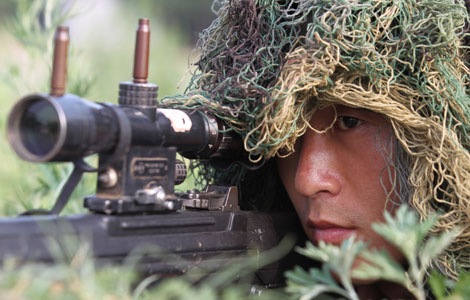
 No holds barred training for elite force
No holds barred training for elite force
 Chinese medical teams reach Philippines
Chinese medical teams reach Philippines
 Beijing won't enforce 'idling engine' rule
Beijing won't enforce 'idling engine' rule
 Oil pipeline blast leaves 22 dead in E China
Oil pipeline blast leaves 22 dead in E China
Most Viewed
Editor's Picks

|

|

|

|

|

|
Today's Top News
East China Sea Air Defense Identification Zone announced
Nokia has 'phab' plan for Chinese mobile market
Newtown investigation report to be released
PetroChina poised for US expansion
Reform to stimulate growth
Big deals expected in Romania
Envoy hails typhoon aid to Philippines
Conditions set for future CE
US Weekly

|

|
